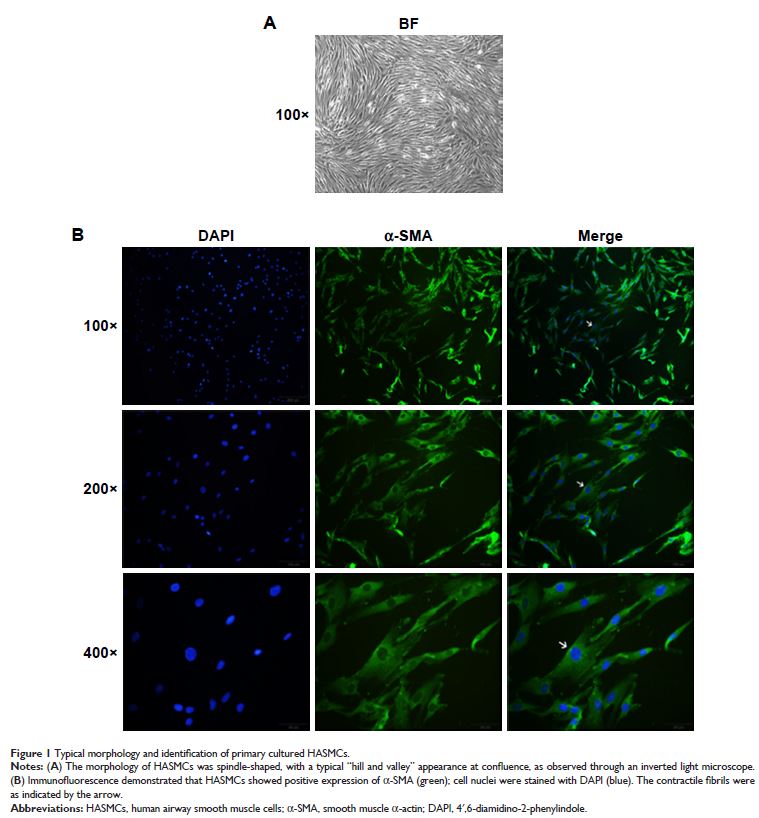108985
论文已发表
注册即可获取德孚的最新动态
IF 收录期刊
- 3.4 Breast Cancer (Dove Med Press)
- 3.2 Clin Epidemiol
- 2.6 Cancer Manag Res
- 2.9 Infect Drug Resist
- 3.7 Clin Interv Aging
- 5.1 Drug Des Dev Ther
- 3.1 Int J Chronic Obstr
- 6.6 Int J Nanomed
- 2.6 Int J Women's Health
- 2.9 Neuropsych Dis Treat
- 2.8 OncoTargets Ther
- 2.0 Patient Prefer Adher
- 2.2 Ther Clin Risk Manag
- 2.5 J Pain Res
- 3.0 Diabet Metab Synd Ob
- 3.2 Psychol Res Behav Ma
- 3.4 Nat Sci Sleep
- 1.8 Pharmgenomics Pers Med
- 2.0 Risk Manag Healthc Policy
- 4.1 J Inflamm Res
- 2.0 Int J Gen Med
- 3.4 J Hepatocell Carcinoma
- 3.0 J Asthma Allergy
- 2.2 Clin Cosmet Investig Dermatol
- 2.4 J Multidiscip Healthc

噻托溴铵在人气道平滑肌细胞中通过 β-连环蛋白信号传导而抑制由乙酰甲胆碱诱导的细胞外基质产生
Authors Huo Y, Guan L, Xu J, Zhou L, Chen R
Received 30 November 2017
Accepted for publication 14 March 2018
Published 3 May 2018 Volume 2018:13 Pages 1469—1481
DOI https://doi.org/10.2147/COPD.S158552
Checked for plagiarism Yes
Review by Single-blind
Peer reviewers approved by Dr Andrew Yee
Peer reviewer comments 2
Editor who approved publication: Dr Chunxue Bai
Background: Airway remodeling is an important feature of chronic obstructive
pulmonary disease (COPD) that is associated with disease severity and
irreversible airflow limitation. An extensive alteration of the extracellular
matrix (ECM) surrounding the airway smooth muscle (ASM) bundle is one of the
pathological manifestations of airway remodeling, which contributes to the
decline in lung function. Tiotropium, a long-acting inhaled muscarinic receptor
antagonist, has been confirmed to play a role in preventing airway remodeling
including ECM deposition beyond bronchodilation in vivo, but the relationship
between ASM cell (ASMC) relaxation and ECM production remains unclear.
Purpose: In this study, we attempted to investigate the influence of
tiotropium on ECM production by ASMCs and the underlying mechanism.
Methods: Tiotropium was added 30 minutes before the addition of
methacholine to primary cultured human ASMCs. Protein expression was analylized
by Western Blot and mRNA abundance was determined by real-time PCR.
Results: We found that tiotropium reduced collagen I protein expression,
and the mRNA abundance of collagen I , fibronectin , and versican . β-catenin signaling was
inactivated by inhibiting glycogen synthase kinase 3β (GSK3β) phosphorylation
in this process. Tiotropum inhibited the amount of active β-catenin and its
transcription activity. Furthermore, overexpression of active β-catenin by
adenoviruses carrying the S33Y mutant resisted the suppressive effect of
tiotropium on collagen I protein expression. However, silencing β-catenin by specific small
interfering RNA enhanced the negative effect of tiotropium.
Conclusion: These findings suggest that relaxation of ASMCs by tiotropium can
prevent ECM production through β-catenin signaling.
Keywords: tiotropium, collagen I, β-catenin, airway smooth muscle cell
